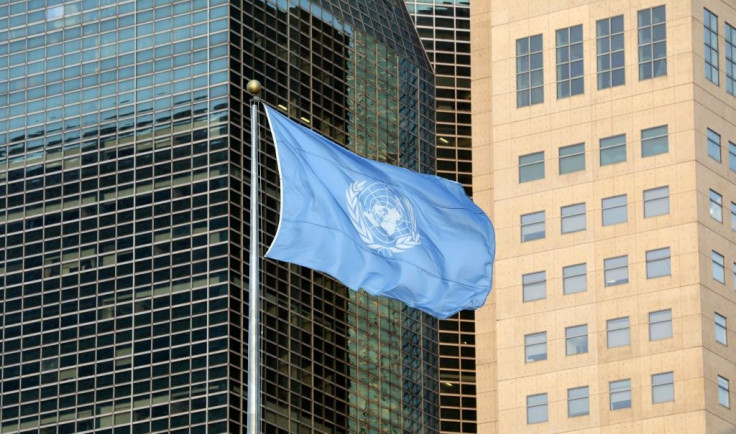Despite Pandemic Disruptions, UN Carries On -- By Videoconference

The usually buttoned-down world of the United Nations is having an unruly April as it copes with the global coronavirus pandemic in a city that is suffering terribly from it.
The UN Security Council's president is stuck in the Caribbean. Closed-door meetings of ambassadors have been upheaved by news leaks. Video conferences have been disrupted by unintended guest appearances.
So far, the UN appears to have been largely spared the epidemic raging in New York, the epicenter of the disease in the United States.
Few in its 3,000-member workforce have tested positive for the disease, perhaps because it implemented working-from-home measures earlier than the rest of the city.
To keep working in such exceptional circumstances, however, calls for exceptional measures -- and, like most other organizations, the UN has experienced a few hiccups along the way.
The presidency of the 15-country Security Council rotates each month in alphabetical order. After China in March, it has been the turn of the Dominican Republic in April.
But Dominican ambassador Jose Singer is in Santo Domingo, stranded due to border closures.
Thanks to videoconferencing he has been able to conduct discussions -- but, according to one ambassador, endured some teasing when he showed up one day wearing his "local outfit."
Although they are normally quick to denounce news leaks of their conversations, Security Council ambassadors surprised journalists with how porous their first session on the COVID-19 pandemic became.
No sooner had the "strictly closed door" meeting begun Thursday than one country's mission posted a screen shot of the participants on Twitter.
Others followed with excerpts of speeches, some going so far as to email Secretary-General Antonio Guterres' speech to AFP before the session had ended.
"There is more transparency behind closed doors," quipped one UN official.
The diplomats have taken to videoconferences with abandon.
"We see poorly; the sound isn't terrible," but "it forces us to be brief," said one ambassador. "We do WhatsApp and videos. It's a pain," but "it gets the job done."
The UN diplomats also have multiplied the use of Zoom to conduct informal briefings.
These too can be revealing. Diplomats have shown up on screen in their bedrooms. In one case, a diplomat mistakenly replaced himself on screen with a giant image of his wife.
Despite stay-at-home measures and orders closing schools, museums and theaters in New York, the UN headquarters remains open.
But it was emptied of its huge workforce in mid-March when most began working from home.
Before the pandemic, more than 11,000 people would enter the United Nations on a typical day. Now, no more than 140 do, according to UN figures.
Guterres initially came in every day to work at his office. Now, he wears a mask and this month began splitting his time between the office and his residence, a house with a garden on the East River.
© Copyright AFP {{Year}}. All rights reserved.





















